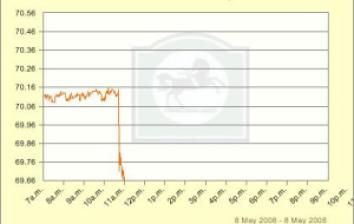Better off or worse off?
Time constraints are preventing me from saying anything. However, I will link to an interesting piece by economists Chris Worthington (here, here, or here).
This piece was a rebuttal to this one, which was based off this research. Another rebuttal was found here.
For me, the money quote from Chris’s article was:
People tend to notice the price rises of things they buy regularly (food and petrol), but are less likely to notice price falls in things they buy infrequently – and it is the latter group where many of the price drops occur.
Not only do I 100% agree, but furthermore I would add that people notice price hikes more than price falls.
For example, I remember people complaining about the unbelievable petrol prices in late 2007 and so forth. However, petrol prices only rose above the levels reached in mid-2006 in March this year – in other words even the nominal price of petrol was lower than what people had been paying up until this point, but most people felt that the prices were unheard of.
How did this happen? People notice fuel prices rise – but they don’t notice when they fall!


